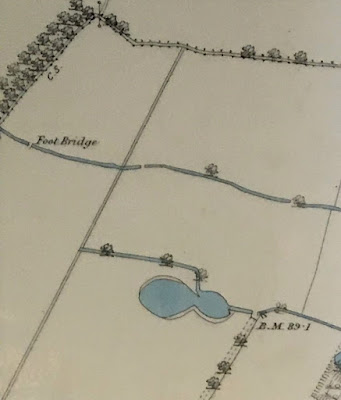I don’t know how I would have conducted myself had I been alive in 1940, after the Fall of France, and the imminent threat of a German invasion.
 |
| Firing postions, 1940 |
Of course, if I was younger, I suspect that knowledge would have been quite limited.
Either way I guess I would have been apprehensive and if I am honest a bit scared.
But I hope I would have joined the Local Defence Volunteers which everyone knows as the Home Guard.
It was an armed civilian militia and was active from 1940 till it was stood down in 1944, by which time 1.5 million local volunteers had joined its ranks.
Most people today are familiar with the force and may veer towards the comic portrayal of them through Dad’s Army. Young men and old men, as well as those unfit for military service, who trained with broom sticks and homemade bombs and created their own armoured cars.
But that is not to ignore the commitment and determination of citizens who fully lived up to that line “cometh the hour, cometh the man”, which of course is not to dismiss those women who served in the forces, drove ambulances, and other “first response” groups.
The degree to which the Home Guard made itself ready is witnessed by the many handbooks, most produced by ex- soldiers which were practical guides to warfare for the civilian.
 |
| Home Guard Drill, 1940 |
They were cheap and small enough to fit into a pocket to be read in the lunch hour or in the evenings.
I have a copy of each, along with the more interesting, New Ways of War, by Tom Wintringham, who in in the forward to his book argued “that war is not a difficult mystery” to be left to soldiers. Today it is the duty of all citizens of a democracy to understand the business of fighting for a People’s War [which] is the only effective answer to Totalitarian War”.*
He had fought in the Great War, gone to Spain at the outbreak of the Spanish Civil War, later joining and commanding the British Battalion of the International Brigade.
After Spain with the outbreak of the Second World War he volunteered for the British army who rejected him because he was a Communist.
 |
| A new way for the Home Guard |
Not daunted he opened a private Home Guard training school at Osterley Park, London which taught the skills of guerrilla warfare, but again because of his political views he was side-lined by the army, and he resigned from the Home Guard in 1941.
 |
| How to do it, 1940 |
In the 1945 general election he stood in the Aldershot constituency, the Labour Party candidate standing down to give him a clear race against the incumbent Conservative MP His wife Kitty stood in the same Midlothian constituency that he had come so close to winning two years earlier, but neither was elected.
After the war Wintringham and many of the founders of Common Wealth left and joined the Labour Party, suggesting the dissolving of Commonwealth.**
Leaving me just to set myself the task of reading his short book New Ways of War, and perhaps comparing it with the other two handbooks.
Pictures; from Rifle Training for War, a textbook for Local Defence Volunteers by Captain Ernest H. Robinson, 140, and New Ways of War, Penguin Special, 1940
* Tom Wintringham, New Ways of War, Tom Wintringham, Penguin Special, 1940
** Tom Wintringham, https://en.wikipedia.org/wiki/Tom_Wintringham













.jpeg)


%20cropped.jpeg)





























